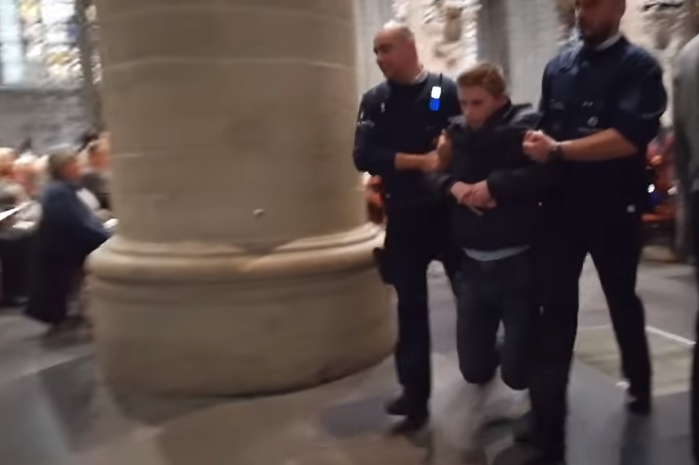'Terrible revolution': Police remove protesting Catholics from Brussels Reformation service
A group of dissenting Catholics were removed by police from Brussels cathedral on Saturday after invading an ecumenical Protestant-Catholic commemoration of the Reformation. The group condemned the Reformation as heretical, a 'terrible revolution' and a 'tragedy for Christian society'.

The United Protestant Church in Belgium (UPCB) hosted the event with the Catholic Cathedral of St Michael and St Gudula yesterday, marking 500 years since Martin Luther supposedly posted his 95 Theses to the door of Wittenberg Castle – a gesture symbolic of the rebellion and church split that followed.
But the service was interrupted by about 12 young Catholics, who linked arms whilst reciting the rosary during the celebration, according to Catholic News Agency. They were eventually removed from the cathedral by police, as Youtube footage shows.
A leaflet that had been allegedly handed out by the group called the ecumenical event a 'profanity', according to the news site Media-Presse-Info.
The leaflet read: 'Our Cathedral of St Michael and St Gudula is a Catholic building built by our fathers to be a House of God, for the celebration of Holy Mass, for the praise of God and the saints.
'Indeed, the so-called Reformation was really a revolt: under the pretext of combatting abuses, Luther rebelled against the divine authority of the Catholic Church, denied numerous Truths of the Faith, abolished the Sacrifice of the Mass and the Sacraments, rejected the necessity of good works and the practice of Christian virtues.
'Finally, he attacked the veneration of the Virgin Mary and the saints, the religious life and monastic vows,' it continued. 'This terrible revolution was a great tragedy for Christian society and for the salvation of souls. And the Lutheran errors are still heresies today because the Truth is eternal.'
The president of the UPCB, Steven Fuit, spoke in celebration of unity amidst diversity at the service, saying that 'differences', when respected and not passively accepted, 'are an inherent part of unity'.











